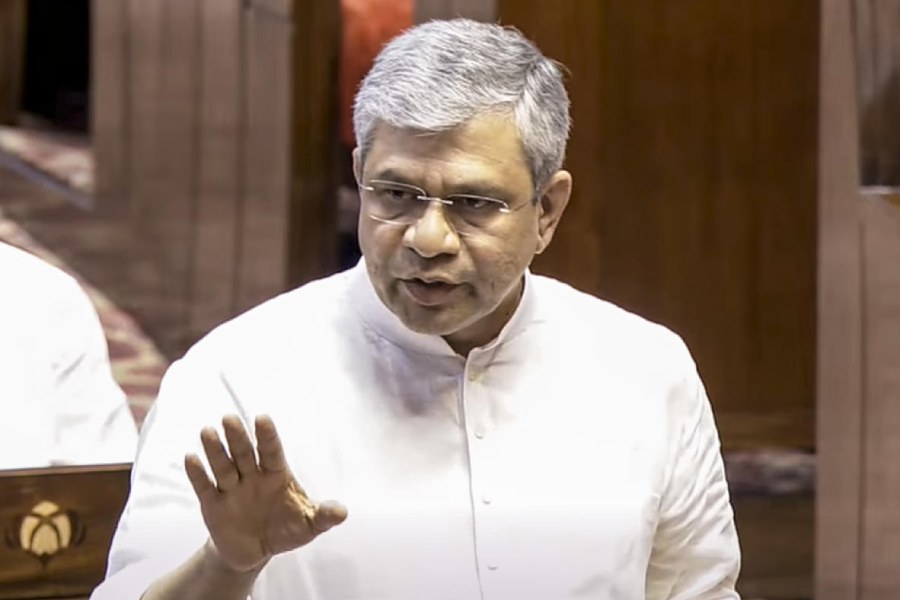Digital rights group Internet Freedom Foundation has contradicted Union electronics and IT minister Ashwini Vaishnaw’s defence of the Digital Personal Data Protection Act, 2023, which the Opposition fears will dilute the Right to Information Act.
In a statement on Friday night, the group said Vaishnaw had not addressed the INDIA bloc’s concern that Section 44(3) of the law, whose rules are soon to be notified, “weakens citizens’ right to information and transparency in governance”.
On Thursday, more than 130 MPs of the INDIA bloc had asked the Centre to repeal Section 44(3) of the DPDP Act, which allows government bodies to withhold “information which relates to personal information” when demanded under the RTI Act.
Vaishnaw responded to Congress MP Jairam Ramesh saying “any personal information that is subject to disclosure under legal obligations under various laws governing our public representatives and welfare programmes like MGNREGA, etc, will continue to be disclosed under the RTI Act”.
The Internet Freedom Foundation explained: “Vaishnaw in his response dated 10.04.2025, contends that Section 3 of the DPDPA exempts publicly available information and any information that is required to be disclosed by law, suggesting this protects the right to information….
“Specifically, it is the RTI Act that empowers citizens to access information held by public authorities, including certain categories of personal information, unless explicitly exempted under Section 8(1)(j). If this section is amended to remove the public interest requirement that required balancing then public authorities have no option but to provide blanket refusals for any government record that contains ‘personal information’.”
The foundation added: “The fact remains that a large portion of ‘public’ information is not readily accessible, and RTI requests are often the only way for citizens to obtain such data. Weakening the RTI Act by amending Section 8(1)(j) directly impacts this process.
“Therefore, while Vaishnaw is correct in stating that Section 3 of the DPDPA exempts certain categories of data from its purview, using it as a justification is disingenuous.”
The foundation’s founder director Apar Guptawelcomed the appeal of the INDIA MPs.
“The RTI Act now has a cold iron statutory bar that will prevent a public information officer from disclosure of any ‘personal information’. It will advance state impunity rather than individual privacy…. Investigative journalism, public interest litigation, and civic activism — pillars of a vibrant democracy — risk being undermined.”
“The RTI Act is not an inconvenience to be legislated away. It is a constitutional commitment to the people of India — a means to hold power to account, to question, to demand answers…. The repeal of Section 44(3) is not merely a legislative correction — it is a democratic imperative along with a broader review of the data protection law that was passed through Parliament without any meaningful debate,” he added.










